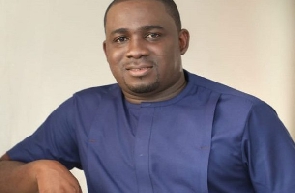Popular broadcaster with Adom TV, Akwasi Nsiah, has stated that poor working conditions, and occasionally lack of pay for journalists are real and pose national security threats.
He asserted that some media industry employees earn as little as GHC300 to GHC500 per month, while others labour entirely without compensation.
The outspoken presenter made the comments during a Friday appearance on Adom TV's Badwam morning show.
He expressed concern that if journalists are not paid enough, they will not be vigilant in carrying out their duties, which will be devastating for the development of our country.
He claimed in his analysis that everyone wakes up and starts a media company as long as they have money, unlike the banking industry where one needs a certain amount of money before starting a bank.
According to Akwasi Nsiah, such actions are the reason why the politicians who predominately run these media outlets are refusing to pay their personnel. He added that the politicians establish the media organizations for their political purposes and that the journalists are left to their fate without being paid once elections are held and they refuse to win.
"A hungry journalist is a threat to national security. In the banking sector, there are regulations stating that you need to have a certain amount of money before you can open a bank; at the very least, you need roughly GHC400 million as a beginning capital.
"But they claim free speech, so anyone can build one, we presently have over 700 radio stations in Ghana, and we will even receive new ones before the 2024 elections. However, after the elections, everything will return to normal.
"The owners are primarily politicians who establish the media companies for political purposes. If a politician loses an election, he no longer cares even about the staff's livelihood. Due to the political taint of these businesses, businesspeople avoid them, which causes workers to be paid as little as 300 or 500 Ghana cedis. They become corrupt and refuse to speak out against matters that will further Ghana's development," he said, as he called for measures to control the individuals who found media outlets in the nation.
According to recent research on the state of Ghana's media, which was released by the Department of Communication Studies at the University of Ghana, Legon, in collaboration with The Media Foundation for West Africa (MFWA), the media is not financially sustainable and the majority of journalists are paid inadequately.
A portion of the report that discussed the working circumstances of Ghanaian journalists stated that the pay in the media is appallingly low and some employees work for extended periods of time without receiving salaries.
A hungry journalist is a threat to national security – Akwasi Nsiah pic.twitter.com/pPtWnNq3PX
— Ghana Guardian (@ghanaguardian1) April 28, 2023













